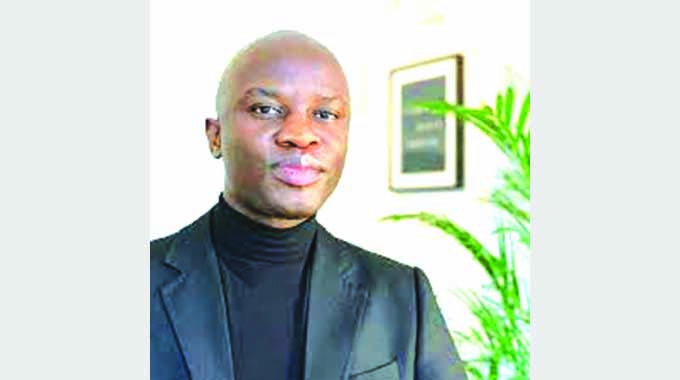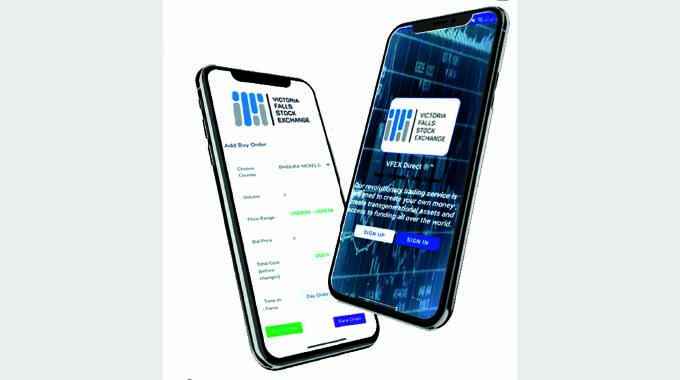New tech to transform health delivery

Latipha Mapfumo
Zimbabwe’s health sector could take a transformative turn with the expected introduction of Artificial Intelligence (AI) innovations to assist in the improved delivery of health services for certain problematic diseases.
Patana AI application, developed by Amsterdam- based Zimbabwean, Babusi Nyoni, is helping in the diagnosis of Parkinson’s disease, through its computer and mobile phones accelerometers, which are being used to assess patients’ posture, gait and hand tremors.
Babusi Nyoni, is a Zimbabwean social entrepreneur and creative technologist born and bred in Montrose, Bulawayo, Zimbabwe’s second largest city, but specialises in developing innovative technologies and initiatives to help underprivileged communities.
Currently, he is endeavouring to grow the adoption and use of artificial intelligence in Africa’s health sector.
Nyoni attended Founders High School for his Ordinary and Advanced Levels.
Due to his poor family background Nyoni could not further his education into university, but that did not dampen his desire and love for everything to do with technology.
A young man who once found himself surviving on menial jobs around Bulawayo, such as general hand work at a café and a stint as security guard, could revolutionise the health delivery.
A few years after completing high school Nyoni tried his hand at graphic designing.
After struggling to secure a well paying job in Zimbabwe, Nyoni left the country to try his luck in South Africa.
In 2012, he moved to Cape Town, South Africa, where he pursued a career in advertising, but he wasn’t exactly content pursuing a career in that space.
With his passion for technology still burning inside, in 2017 Nyoni moved to Amsterdam, Netherlands, to pursue a career in technology.
In 2019, Nyoni created a dance application that used a computer to rate dance moves in a dancing challenge basead on a popular South African dance known as Vosho Fo’sho.
The application became popular in South Africa. It was one of the first use cases of in-browser pose estimation using the computer version.
From that breakthrough, Nyoni and his team learnt of sub-Saharan Africa’s affinity for high-end technology that suits their needs.
The application can work on low-end to high-end devices including basic smartphones.
With the insight that they got from the dance application experiment, Nyoni and his team decided to further research on how to put the same technology into something that could help in saving lives.
In their research they came across Parkinson’s disease.
Parkinson’s disease is a brain disorder that causes unintended or uncontrollable movements, such as shaking, stiffness and difficulty with balance and coordination.
The symptoms usually begin gradually and worsen over time and as the disease evolves, people may have difficulty walking and talking.
Parkinson’s is caused by a loss of nerve cells in the part of the brain called the substantia nigra.
Nerve cells in this part of the brain are responsible for producing a chemical called dopamine.
Parkinson’s does not directly cause people to die, but the condition can cause great strain on the body and can make some people more vulnerable to serious and life-threatening infections.
But with advancement in medical treatment, most people with Parkinson’s disease can now have a normal or near-normal life expectancy.
To detect two of the Parkinson’s disease symptoms, Nyoni’s team was able to measure gait and posture using the dance application and after a few modifications they ran a small pilot programme with Ekuphumuleni Geriatric Nursing Home in Bulawayo.
From the feedback they received from the research at Ekuphumuleni Geriatric Nursing Home, Nyoni and his team created the version of the AI application, called Patana AI, which has since found its way on to app stores.
The application is engineered to work in low light conditions and in case of a power outage, one can still manage to collect data.
For a lot of elderly people having to perform multiple movements for diagnosis was close to impossible. And so Nyoni’s team came up with a combination of movement based tests, which allow them to capture both posture and gait information using the video stream.
Since the launch of the Patana AI application Nyoni has been traversing the globe making speeches. He delivered a speech at Oxford University in 2019 and at Google conference in San Francisco, on their findings in relation to the application and how the technology was developed.
Nyoni is currently working in partnership with Parkinson’s disease publications in Europe and intends to generate awareness about the technology and help it to get into the right hands.
Currently the application can be accessed by anyone across the globe through app stores.
Many health institutions globally have found the AI highly useful for accurate diagnosis as it has made the disease more manageable and to improve the quality of life for patients.
Sila health care in Bulawayo is one of several health institutions already using the technology application to manage Parkinson’s disease on patients.
“Pataina AI helps caregivers capture observational data and collect it in an empirical form, so it vastly improves the accuracy of observations,” said Nyoni.
He added on saying: “The application was built with a Zimbabwe first approach in order to showcase the brilliance that our country has and we would be coming full circle if the platform was used by healthcare practitioners in Zimbabwe, especially Government health institutions.”









Comments